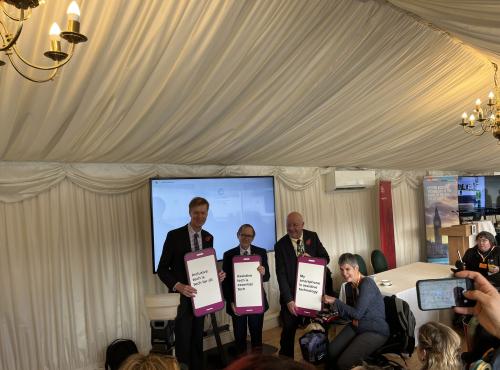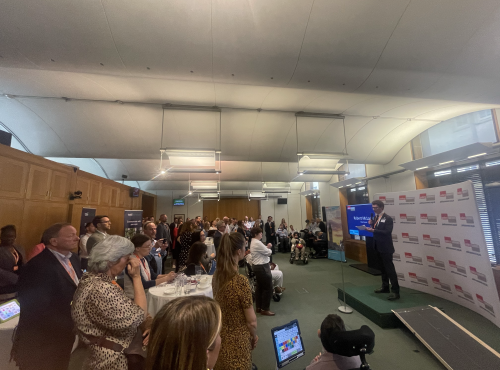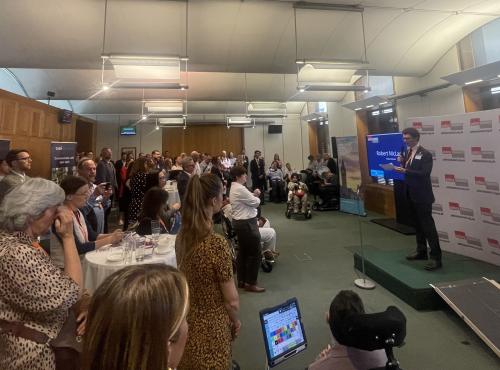AT & Employment Commission Call for Evidence
Assistive Technology & Employment Transitions
Call for Evidence
Deadline 15 September 2020
About the Commission
Policy Connect and the All-Party Parliamentary Group for Assistive Technology have launched a Commission to explore how government and employers can better support disabled people to benefit from the opportunities presented by technology as they move into the workplace. Co-chaired by Lilian Greenwood MP and Lord Shinkwin, the Commission will examine the ways in which assistive technologies and digital (in)accessibility can influence disabled people’s ability to successfully transition into employment. It will advise government, educational institutions and employers on how to put these insights into action.
Despite significant advances in disability rights in recent decades, disabled people remain under-represented in the workplace and in the upper echelons of organisations. Meanwhile, the past 20 years has witnessed a period of rapid technological innovation and growth, presenting a multitude of opportunities for disabled people across all aspects of their lives. The on-going Covid-19 pandemic has resulted in many technologically-enabled changes to working and training practices, and the Commission will consider how we can ‘build back better’ to ensure disabled people have equal opportunities to work.
The commission has three major strands:
- Transitions from education (higher and further, including apprenticeships)
- Transitions from unemployment
- Employers and inclusive workplaces
How to submit evidence
The Commission welcomes all types of evidence, from analyses or internal studies you or your organisation has carried out to personal or organisational views on these issues. We welcome discussion of how disability intersects with other protected characteristics (i.e. race, gender, religion) as related to the research questions.
Please submit your answers by emailing a document to Clive Gilbert and/or Geena Vabulas. If you have any questions or accessibility issues, please email or call us.
0207 202 8585
clive.gilbert [at] policyconnect.org.uk (clive[dot]gilbert[at]policyconnect[dot]org[dot]uk)
geena.vabulas [at] policyconnect.org.uk (geena[dot]vabulas[at]policyconnect[dot]org[dot]uk)
Questions
1. Respondent Information
1.1 What is your name?
1.2 What is your role?
1.3 Which institution/organisation(s) do you work with (if any)?
1.4 Do you give permission for the Commission to quote your submission?
1.5 Can we attribute the submission to the institution/organisation?
1.6 Can we attribute the submission to you personally, listing your job-role?
2. Transitions from the education system
What digital accessibility barriers do disabled people face transitioning from education (university, apprenticeships, supported internships) to employment, and how might we remove these barriers and enable education-leavers with assistive and accessible technology? You may want to consider: examples of best practice, the Disabled Students’ Allowance, Access to Work, or the upcoming T-Levels.
3. Transitions from unemployment
What digital accessibility barriers do unemployed disabled people face that affect their ability to find employment, and how might we remove these barriers and enable jobseekers with assistive and accessible technology? You may want to consider: JobCentre Plus, digital skills training, applying and interviewing, or examples of best practice. We will be particularly interested in your views on how the new Kickstarter Scheme and Youth Employment Hubs can best support these issues.
4. Employers and inclusive workplaces
What challenges do disabled people and their employers face in terms of ensuring digital accessibility and implementing assistive technology in their workplace? You may want to consider: Disability Confident Scheme, Access to Work, issues specific to SMEs and self-employed people, and examples of best practice.
5. Covid-19
What challenges and opportunities does the Covid-19 pandemic present for disabled people seeking employment? You may want to consider: the shift to remote working, disabled people’s employment prospects, changes to education and training practices, and examples of best practice.



